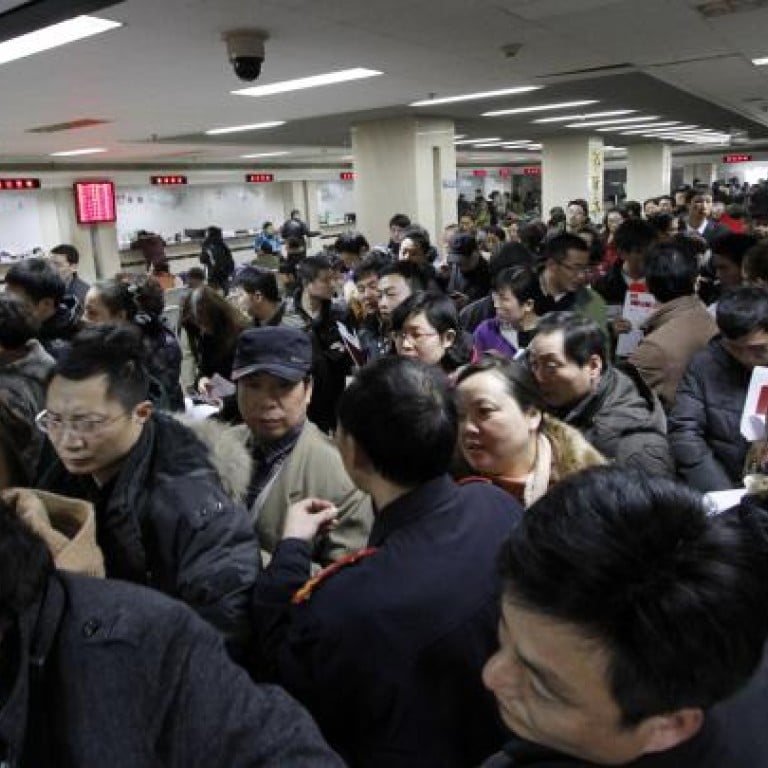
News of home sale tax prompts rise in weekend transactions
New measures announced last week to cool China’s residential property market triggered a surge in transactions in major cities over the weekend.
On Friday, the State Council, China’s cabinet, announced a steep 20 per cent capital gains tax on home sale profits - a move which sent mainland property developers’ shares falling.
Purchasing second homes have also been made harder as cities with “excessively fast” price gains were ordered to raise down-payment requirements and interest rates on second-home mortgages.
Shanghai real-estate registration offices were packed with busy buyers and sellers on Saturday morning.
“I’ve been in [the industry] for a number of years now and its not the first time sudden policy changes have triggered panic-like trading in the market,” a sales agent, surnamed Wang, said.
“However, the 20 per cent tax this time is too high and both buyers and sellers will find it hard to absorb,” he said.
Wang also said the busy period would only last a short-time because and once the tax took effect, the secondary market would probably become “deserted”.
The National Development and Reform Commission said on Tuesday it would boost the supply of medium, small-sized homes this year and keep differentiated curbs, home mortgage and tax policies. The government will steadily curb speculative property demand and gradually expand the property tax trial.
It is still not clear when the new tax will come in.
A gauge of developers in the Shanghai Composite Index tumbled 9.3 per cent on Monday, the most since June 2008.
On Chinese social media, photos surfaced of government-run registration offices, such as the one in Pudong, packed with people as late as 11pm in the evening.
“This type of crazy herd mentality is not new in China,” one netizen posted on Sina Weibo. "Hopefully this will have an impact on speculators."
Meanwhile, the number of units listed for sale at one Beijing estate agency surged by nearly 40 per cent one day after the announcement, the Economic Information Daily newspaper said on Monday.
Lu Ting, a Hong Kong-based economist at Bank of America Merrill Lynch, said the crackdown on the secondary market could shift demand to new homes.
“These new measures may inadvertently shift demand of existing homes to new homes, pushing new home prices to rise even faster,” he said in a research report.
Shares in Poly Real Estate and developer Gemdale both plunged nearly 10 per cent on Monday morning. Analysts said the new measures might dampen sentiment towards the sector in the short term, but home prices could rise in the long run.
“Such policies will always have a temporary, noisy, and negative impact,” said Liu Ligang, an economist for Australia and New Zealand Banking Group in Hong Kong.
“However, they will not have much lasting impact... long-term demand will not suddenly disappear,” he said in a research paper, citing China’s continuing urbanisation.
Additional reporting from Agence France-Presse and Bloomberg

